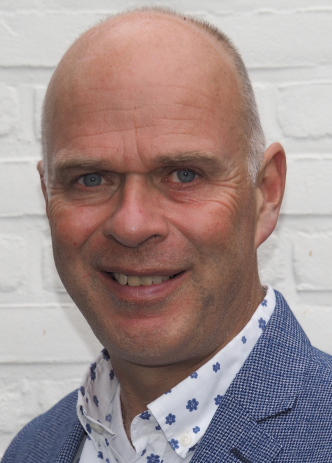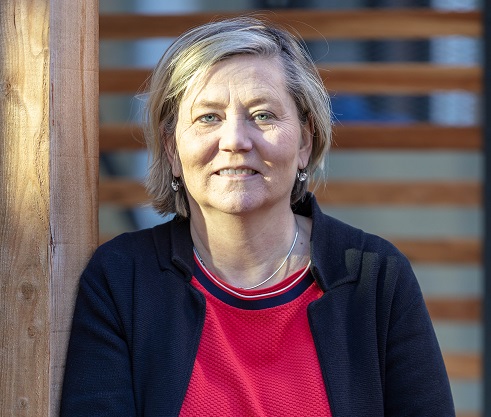“The focus on efficiency has gone too far”
The outgoing cabinet has earmarked €8.5 billion to rectify the damage to education caused by the lockdown. For universities, this includes halving the tuition fees for the coming academic year, hiring additional lecturers to cater for the increase in student numbers (as many young people have cancelled their gap year) and extending the employment contracts of young academics, many of whom were unsure whether they would still have a job in the near future. Jeroen Kooman, internist and director of EDLAB—the UM institute for educational innovation—welcomes the measures. “It takes the pressure off a bit.”
A self-described social-liberal, Jeroen Kooman sees the role of the government in higher education as that of a facilitator. “The government has to ensure that education is accessible to everyone without throwing up too many obstacles. In that sense, the abolition of the basic grant was a bad move. By saddling young people with student debt, you don’t make it easier for them to build a life after graduation. I think the government has focused too much on efficiency and cost control in recent years. The basic grant had to go so that more money could be invested in education. Of course you should strive for high-quality education, but the basic grant should never have been traded in. The funds that are coming our way now should have been made available earlier.”

The next few weeks we'll present academics, students and alumni talking about the upcoming Dutch elections in times of corona. This week Jeroen Kooman, internist and director of EDLAB—the UM institute for educational innovation.
More time to catch up
If one thing has become clear in this crisis, it is that students are struggling with the pressure to graduate on time. “When you prioritise efficiency above all else, you end up with little leeway. So your buffer is smaller when unforeseen circumstances inevitably arise. That’s what this crisis has shown, including in education. As a student you should have the freedom to decide that your study programme isn’t right for you, without it immediately having huge repercussions. In this sense, the focus on efficiency has gone too far. With students confined to their rooms by the lockdown, unable to do internships or gain experience abroad, letting them extend their studies over a longer period has only become more important. You have to give them more time to experiment, time for personal and social development. An injection of government funding can certainly contribute to this. In the coming years, we’ll have to be more lenient, for example by making binding study advice more flexible. The high school students who are now forced to sit their final exams under difficult circumstances may not face a smooth transition. We—and the government—have to be alert to this.”
The crisis has advantages too
Throughout his career, Kooman has combined patient care, research and education. As director of EDLAB, he has witnessed the recent explosion in online education initiatives that, even when things return to ‘normal’, we can continue to benefit from. “In the ‘Edvance’ project, we’re identifying which online education initiatives have been successful: internationally, by means of a literature review, and internally, with our own teachers, programme coordinators and students. We hope to have the results by the end of this year. Blended learning, an integrated combination of off- and online education, is likely to take off even more. Online education works well when it comes to pure knowledge acquisition; I saw that myself as a tutor for first-year students. The transition went smoothly and I don’t think it’s been detrimental in terms of knowledge acquisition. But education is about more than merely acquiring knowledge: it’s also about socialisation and personal growth, which is more difficult to achieve solely online. The problem right now is that there’s no way for students to get together. They can’t go play sports, meet up with their study association, hang out together here. So it’s not just online education that leads to loneliness; it’s the social situation as a whole. In retrospect, I think we’ve learnt a lot as a society, but we’ve paid a big price for it. If we try to find the good in it, then at least it won’t have been in vain.”
Voting is a moral obligation
Kooman takes an empathetic view of the measures taken by the government. “There’s a lot of criticism of the cabinet, but it’s easy to judge after the fact. I assume that they acted with the best of intentions and to the best of their knowledge to all these new and unexpected developments. No doubt things could have been done better, but it’s just a terribly difficult situation. Working in healthcare myself, I understand why they prioritised what they did. Without the measures, we would most likely have been overrun.”
Kooman already knows who he will vote for, but where remains unclear. “I’m worried about that. Perhaps it’d be better to postpone the election until all the elderly and vulnerable people have been vaccinated. Now it’s likely there’ll be a low turnout because people won’t dare to vote for fear of infection, as we saw recently in Catalonia. That doesn’t serve democracy. I see voting as a moral obligation, but people also have to be able to vote safely.”

Jeroen Kooman is professor of Chronic Kidney Failure at the NUTRIM research school and an internist-nephrologist at the MUMC+. He has been director of EDLAB, the UM institute for educational innovation, since 1 September 2020. He has combined patient care, research and education since the very start of his career. Kooman studied at Maastricht University, obtaining his PhD here in 1992. He previously held several positions in the FHML Institute for Education, including coordinator of the bachelor’s in Medicine and chair of the Medicine programme committee.
Also read
-

Frederik Claasen, the head of policy at our partner organisation Solidaridad Network on the opportunities and obstacles facing smallholder farmers in their data ecosystems.
-
“In the field of diabetes 2 and cardiovascular disease prevention, the results of our research are a big step in the right direction". Does personalized nutrition have positive effects on health? "The answer to this question is a resounding yes," says Ellen Blaak, professor of human biology and...
-
Computers are already capable of making independent decisions in familiar situations. But can they also apply knowledge to new facts? Mark Winands, the new professor of Machine Reasoning at the Department of Advanced Computing Sciences, develops computer programs that behave as rational agents.

